How to Repel Raccoons
There are several raccoon repellants that one can use to chase away these animals. Raccoons are always scared of the following:
- Dogs. They must be big enough to scare raccoons since they also attack.
- An aggressive person with a weapon. But they must take precautions since the raccoons can retaliate.
- Loud noises like fire crackers or gunshots.
- Anything that can irritate their bodies, which include pepper sprays and human mace.
Even though the above measures scare raccoons, there are some mistakes that homeowners often make in an attempt to scare raccoons. Below are the mistakes to avoid.
- Using small dogs and cats
- High pitched sounds and machines
- Bright and flashing lights do not scare or chase raccoons
- Odor repellants like feces and urine cannot scare aware raccoons. They might attract them.
Note: Scared raccoons are very dangerous and can attack anyone at any given time. Precautions must be taken just in case this happens.
Even though non-chemical repellants seem to work in some cases, using chemical repellants is more effective. To achieve your goal, you should consider the following:
Areas of Application:
Identify the area where raccoons love visiting most, as this can help you target the bandits precisely.
Doing so also helps to choose the most effective repellant that can work best in the area. Some of the regions raccoons visit the most include:
Attics: Most female raccoons access the attic to reproduce.
Fish ponds: They invade the fish pond to eat the fish.
Vegetable gardens: Raccoons access the gardens to feed on the vegetables.
Trash Bins: They invade trash cans frequently for food whenever they’re hungry.
Bird feeders: They invade chicken feeders for food and also like to feast on unprotected chickens.
Underneath Porches: Should also be checked.
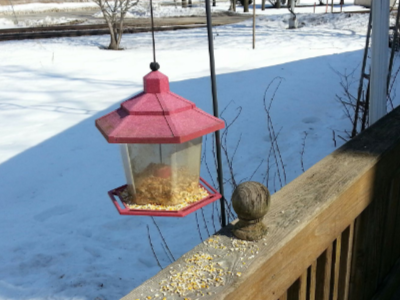
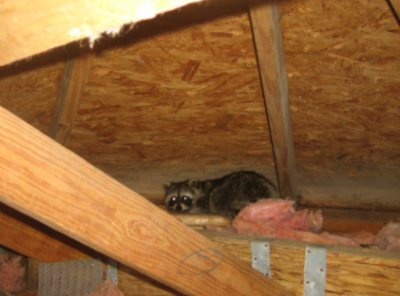
Choosing the right repellant:
Spices: These are made from cinnamon, ground pepper, and dried hot peppers. They irritate raccoons through smell, thereby keeping them away.
Ammonia: Use ammonia to smoke your chimneys to keep raccoons away. You can also use fume rags and place them on pathways to repel any incoming raccoons.
Peppers: Boil peppers with onions for several minutes. Then spray the mixture on paths, houses, yards, and trash.
To use this method effectively, you should apply the pepper solution once every three days or after heavy rains that can wash away the repellants.
Sprinklers: You can use motion-based water sprinklers to keep raccoons away.
If you opt for this tactic, always make sure your sprinklers are positioned in such a way that they sprinkle the water on any raccoon that tries to use the entrance.
Flashlights: Install motion sensor flashlights to scare away raccoons at night.
Before you can employ the flashlights, ensure they’re in perfect working condition by pre-testing.
Loud sounds: If living in areas without neighbors, one can use loud noises to keep raccoons from invading your premises or gardens.
If the above methods don’t work for you, then you can buy artificial repellants from online stores or farm and feed stores.
Artificial repellants come in three classes:
- Liquid repellants.
Granule repellants.
Electronic repellants.
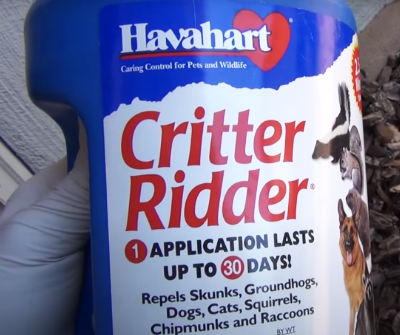
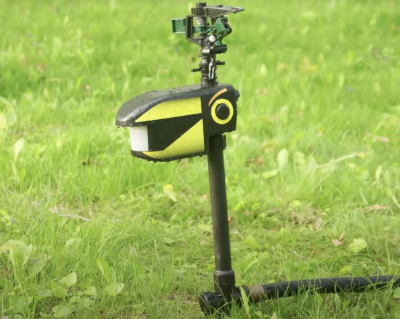
Liquid repellants: Are best used on surfaces. They must be used outdoors and work best on temperatures above 40o Celsius or 104o Fahrenheit. Liquid repellants must be reapplied after a torrential downpour or after a new plant or flower has been planted.
You can use liquid repellants to keep off raccoons in the areas below:
- Hard surfaces
- Garbage bins and trash bags
- Plants, flowers, and trees
- Chicken feeders
- Roofs and gutters
Granular Repellants:
- Granular repellants create a barrier between raccoons and their target areas.
- They’re used on flat surfaces.
- Works in all weather conditions.
- Their effect lasts longer than the liquid repellants.
- Need to be reapplied after a torrential downpour or other massive activity.
Granular repellants work best in the following areas:
- Gardens
- Raccoon dens
- Flower beds
- Sheds
- Attics
- Paths
- Animal bins
- Other spaces they can crawl into
Electronic repellants:
Electronic repellants work in the following ways:- Scare raccoons by spraying water on them.
- Require little or no maintenance.
- Are eco-friendly.
- Have a strong repulsion effect as compared to granular and liquid repellants.
Electronic repellants can work great in the following areas:
- Vegetable gardens and flower beds
- Mulch beds
- Pathways
- Yards and lawns
- Variety of structures
- Pool areas
- Entries to properties
- Fish ponds
- Garbage bins and trash cans
- Trees and other plants
How to apply repellants:
Before using any repellant, always read the manufacturer’s manual on how the repellant should be used. This helps to avoid any risk or ineffectiveness of the repellant.
Below are some of the guidelines for repellant application.
Reapplication: Always know when and how to do the reapplication to make the repellants effective in controlling the raccoons. Failure to follow the schedule may make these repellants less effective or ineffective.
Shake well before use: This enables the ingredients to mix and disperse as required.
Location: Especially for electronic repellants, ensure the sensor and direction of water always face raccoon entry channels.
Spray: Spray repellants must be used in the correct way to be effective. Leaving areas not sprayed may turn them into entry points for raccoons.
Removing the potential attractions:
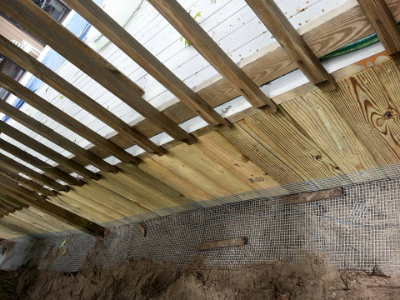
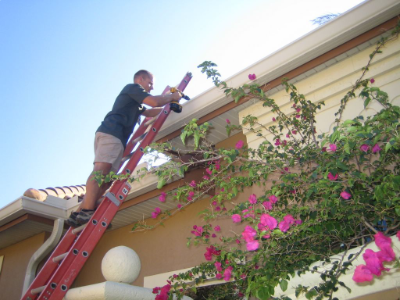
For repellants to be effective, you should also work what is attacting the raccoons. Some of the raccoons’ attractions include:
Closing the gates and other gaps
Fixing of broken vents and other structures
Cleaning off chicken and animal feeds
Removing trash and garbage
- Washing off waste and scrap
- Removal or covering of water sources
- Removing food particles
- Use sense and taste repellants
- Be patient as things may not work out overnight

